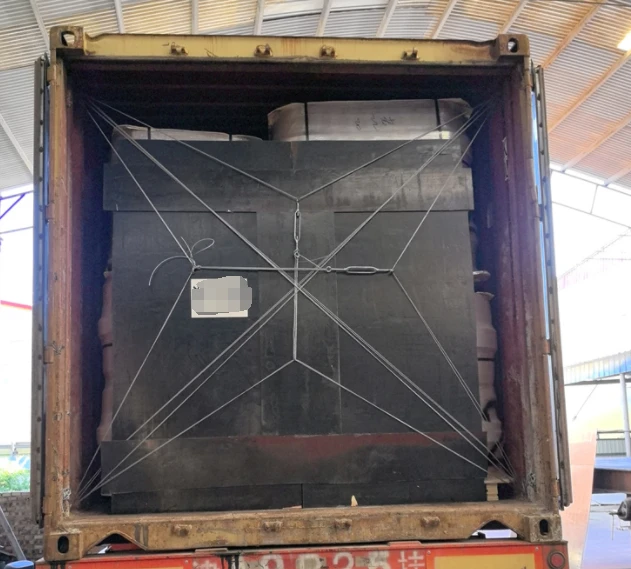Nov . 08, 2024 23:27 Back to list
Troubleshooting Noisy Brake Drums and How to Fix Squeaking Sounds
Understanding Brake Drum Squeak Causes and Remedies
When it comes to vehicle maintenance, one of the most crucial aspects is ensuring that the braking system functions effectively. Among the various components of this system, brake drums are vital, especially in vehicles equipped with drum brakes. A common concern that drivers may encounter is a squeaking sound coming from the brake drums. This noise can be alarming, indicating potential issues that need to be addressed promptly. Let’s explore the causes of brake drum squeaking, its implications, and how to remedy the situation.
Causes of Brake Drum Squeak
1. Worn Brake Shoes One of the primary reasons for squeaking noise is worn brake shoes. As brake shoes wear down over time, the friction material can become thin, leading to metal-to-metal contact with the brake drum. This contact produces a high-pitched squeaking sound, which signifies that the brake shoes need to be replaced.
2. Dust and Debris Accumulation Brake drums are often exposed to various environmental factors, leading to the accumulation of dust, dirt, and debris. When these particles settle on the brake shoes or drum, they can create a rough surface that generates friction and noise during braking.
3. Moisture or Rust If a vehicle is parked for an extended period, especially in humid conditions, moisture can accumulate in the brake drum area. This can lead to rust formation, which may cause the brake shoes to stick or create noise when the brakes are applied.
4. Improper Installation If brake components are improperly installed, this can lead to misalignment, resulting in noise when brakes are engaged. Ensuring that all components are installed correctly by a professional is essential to avoid issues like squeaking.
5. Lack of Lubrication Brake components often require lubrication to function smoothly. The absence of necessary lubricant can lead to increased friction between parts, causing squeaking noises when the brakes are used.
Implications of Brake Drum Squeak
brake drum squeak

Ignoring a squeaking brake drum can have severe implications for your vehicle's safety. Squeaking often indicates that the braking performance is compromised; if left unchecked, this can lead to brake failure. Moreover, continuous friction can cause further damage to the brake components, leading to costly repairs. Therefore, addressing braking issues promptly is essential for maintaining vehicle safety and performance.
Remedies for Brake Drum Squeak
1. Regular Inspections Regular inspections can help identify wear and tear before they become serious issues. A mechanic can check the condition of the brake shoes, drums, and other components, ensuring everything is in good working order.
2. Cleaning the Brake Components If dust and debris are causing the squeak, cleaning the brake assemblies is an effective solution. Use compressed air or a brake cleaner to remove accumulated dirt. This can significantly reduce noise and improve performance.
3. Replacing Worn Components If the brake shoes or drums are worn beyond safe limits, they should be replaced. Using high-quality parts will ensure better longevity and performance, reducing the chances of squeaking in the future.
4. Proper Lubrication Ensuring that all moving parts of the brake system are adequately lubricated can prevent squeaking. A mechanic can apply the appropriate type of lubricant to the hinges and contact points to reduce friction.
5. Seek Professional Help If you’re unsure about the source of the squeak, it’s best to consult a qualified mechanic. They can diagnose the problem accurately and recommend appropriate solutions.
Conclusion
In summary, brake drum squeaks are not just an annoyance; they can be indicative of underlying issues within the brake system. Recognizing the causes and implications of these sounds is crucial for vehicle safety. By taking proactive steps through regular maintenance and timely repairs, you can ensure that your vehicle remains safe and efficient on the road. Always prioritize the health of your brakes and consult professionals when in doubt.
-
Scania Brake Drums: OEM Quality for Optimal Safety & Durability
NewsAug.16,2025
-
R.V.I: Advanced Remote Visual Inspection for Precision
NewsAug.15,2025
-
Discover HYUNDA: Innovative Vehicles, Equipment & Solutions
NewsAug.14,2025
-
R.V.I: Unlock Advanced Insights & Real-time Performance
NewsAug.13,2025
-
Kamaz Brake Drum: Durable & Reliable for Heavy Duty Trucks
NewsAug.12,2025
-
Heavy Duty Iveco Brake Drum - Premium Quality & Safety
NewsAug.11,2025
